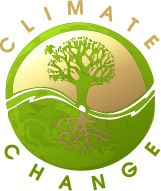Climate Change

The Forest Service strategy for dealing with climate change is based on 25 years of targeted research and a century of science and management experience. The Forest Service strategy includes helping forests adapt to changes in climate by restoring the resilience of forest, range and aquatic ecosystems; managing forests to increase the carbon dioxide they capture and store; using forest products to reduce and replace fossil fuel energy; maintaining a research program; and reducing the agency's environmental footprint.
Many ecosystems are likely to be threatened in this century by an unprecedented combination of climate change, associated disturbances, and other global change drivers. Major disturbances such as floods and droughts are likely to increase in number and intensity. The ecological impacts of wildfires as well as forest pests and diseases are expected to rise, with extended periods of high fire risk and large increases in area burned.
The impacts of changes in climate threaten the capacity of national forests to provide the kinds of environmental services that people have come to expect, including clean air and water, habitat for fish and wildlife and opportunities for hunting, fishing, skiing, and other kinds of outdoor recreation.
The effects of climate change are evident in our forests today:
- Fires are a natural part of forested landscapes, but each year the fire season is coming earlier and ending later. In addition, the fires themselves are burning hotter and have become more damaging and dangerous.
- Insects are also a natural part of forested landscapes, but now the insects—both the native ones and the invaders—are spreading more rapidly. The winter cold isn't knocking some populations back. Epidemics are larger and last longer, killing more trees and increasing fire risk.
- The warmer winters are also affecting our water supplies. The snowpacks are thinner and they melt earlier in spring, so the water runs out from the forest earlier in summer. Extended droughts make trees more vulnerable to fire and insects.
Climate Change, Mitigation, and Adaptation Science
The Pacific Southwest Research Station (PSW) plays a leadership role in climate change and greenhouse gas science at national and international levels. Research of PSW scientists focuses on assessing climates, evaluating ecosystem responses, promoting approaches to sequester carbon and reduce greenhouse gas emissions, and developing adaptation strategies to manage natural resources in the face of changing climates.
Climate Change Blasts Library
Noteworthy regional office and forest level accomplishments regarding different aspects of climate change.
- December 2023 CCIT Blast Private Forest Lands and Climate Change
- June 2023 CCIT Blast Urban Forestry and Climate Change
Sustainable Operations
Sustainability is central to the U.S. Forest Service's mission of "sustaining the health, diversity, and productivity of the Nation's forests and grasslands to meet the needs of present and future generations." Region 5 is a leader in this arena by finding and implementing innovative ways to run its day-to-day business operations in more sustainable ways.
- Read more about Sustainable Operations
Spotlights
Solar Arrays Power Ranger Stations in the Los Padres National Forest
At selected Forest Service facilities and ranger stations, progress in saving tax dollars and energy efficiency is expanding into the 21st century.

